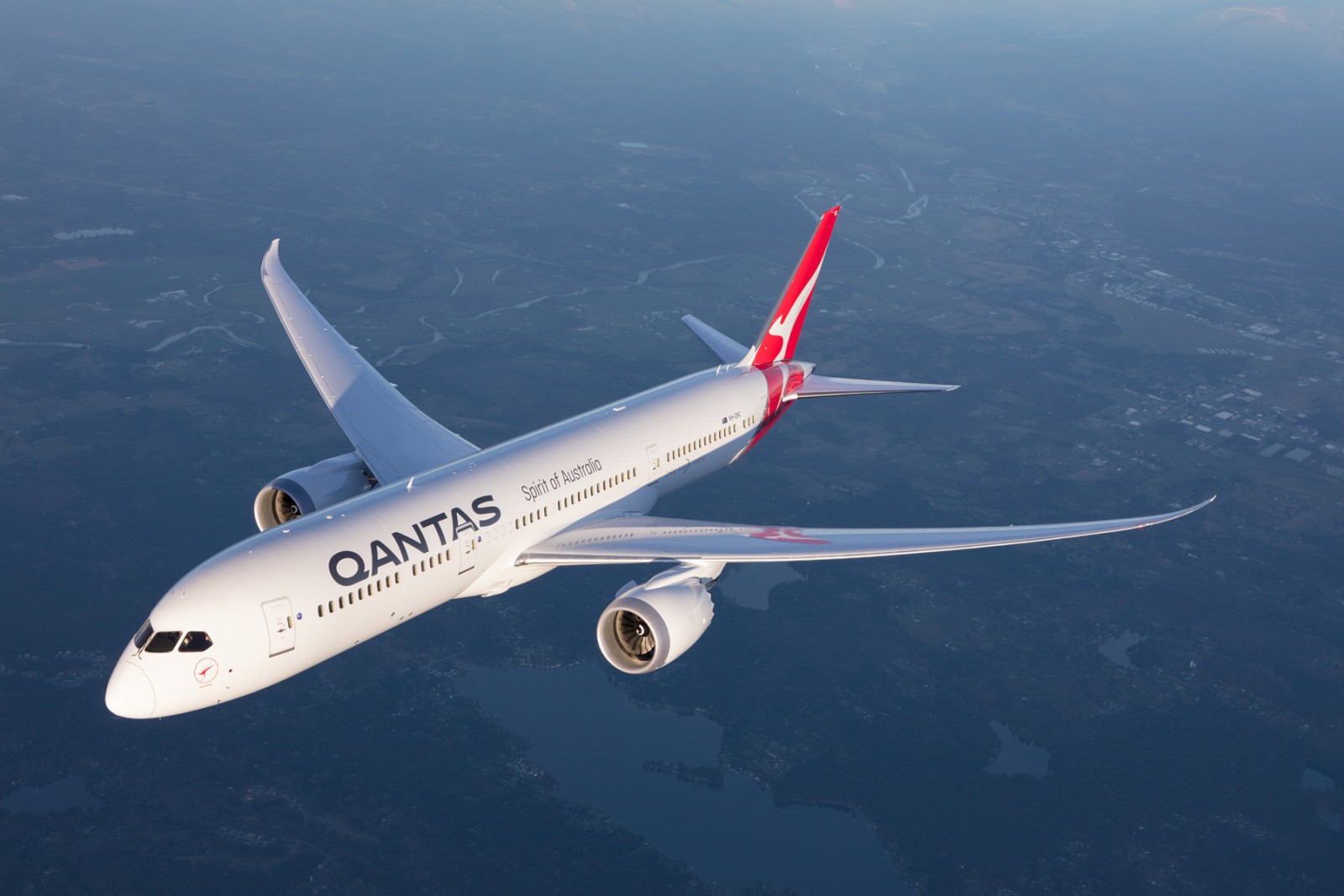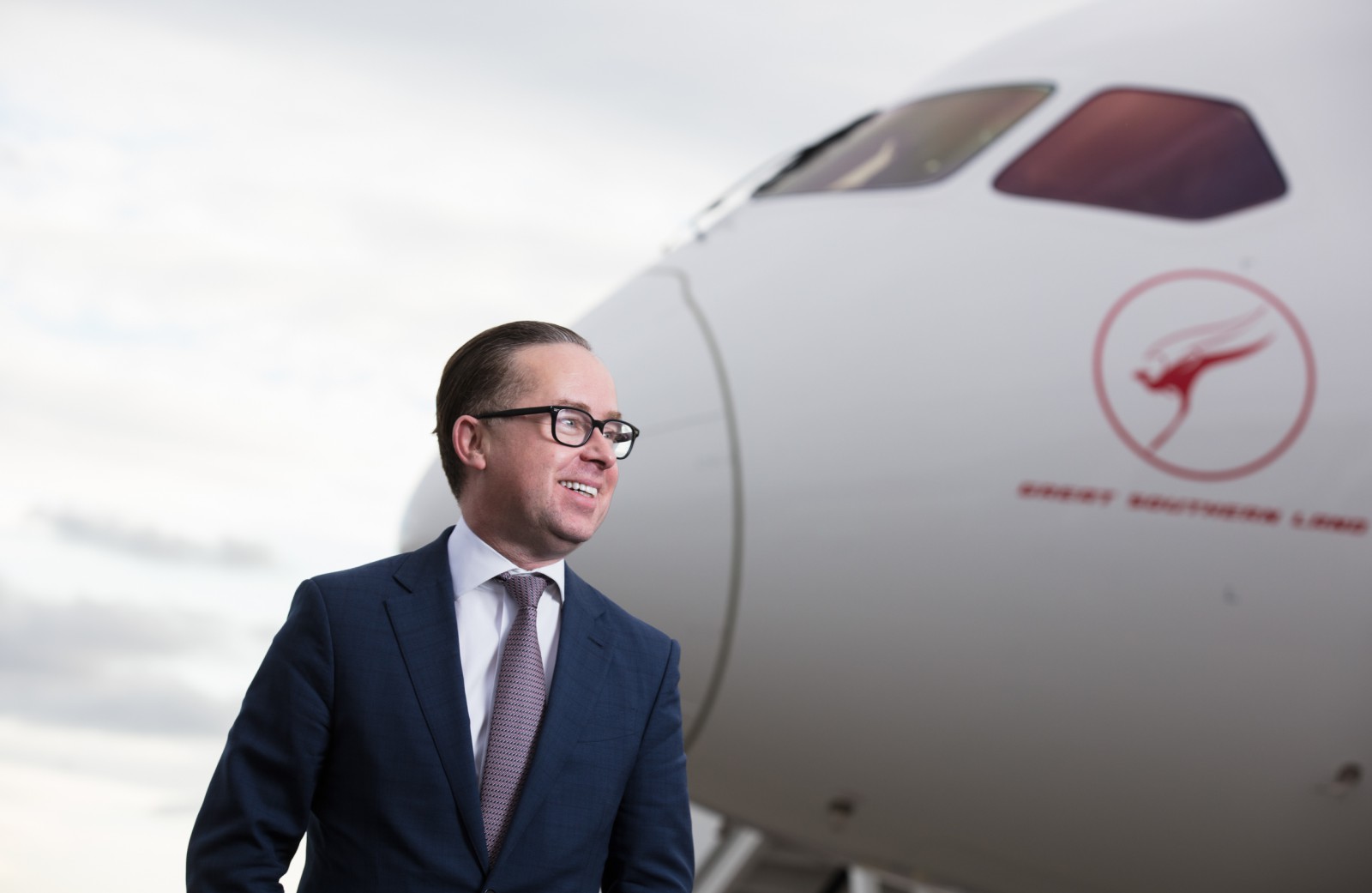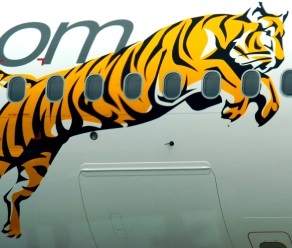Qantas to reach zero net carbon emissions by 2050
10 November, 2019
3 min read
Airline News

Geoffrey Thomas
By joining our newsletter, you agree to our Privacy Policy


The Qantas Group has promised it will reach net-zero carbon emissions by 2050 in a major expansion of its commitment to a more sustainable aviation industry.
The announcement means Qantas is the only airline group to commit to cap its net emissions at 2020 levels, and the second to commit to net zero emissions by 2050.
In total, these commitments are the most ambitious carbon emissions targets of any airline group globally.
The aviation industry, which contributes around 2 per cent of global CO2 emissions, has committed to halving emissions by 2050 compared to 2005 levels.
READ: Aviation making great strides in reducing carbon footprint.
It was the first industry to make such commitments.
Qantas had signed up to those commitments but will now exceed them.
All units of the Group, including Jetstar, will offset all growth in emissions from domestic and international operations from 2020.
This includes offsetting all net emissions from Project Sunrise, the carrier’s plan to operate non-stop flights from the east coast of Australia to London and New York, should the project proceed.
This will also extend to domestic flying, meaning that growth on key routes like Melbourne-Sydney will be carbon neutral.
Qantas said it will work with industry, research institutions and governments to develop long-term solutions to significantly reduce greenhouse gas emissions from the aviation industry over the next three decades.
It operates the largest carbon offset program in the aviation industry, with around 10 per cent of customers booking flights on Qantas.com choosing to offset their flights.
However, from today, Qantas and Jetstar said they will double the number of flights offset by matching every dollar spent by customers who tick the box to fly carbon neutral.
The additional investment will see Qantas Future Planet, which is already the largest private-sector buyer of Australian carbon credits, support more conservation and environmental projects in Australia and around the world.
It will also invest $50 million over the next ten years to help develop a sustainable aviation fuel industry.
Sustainable aviation fuel can reduce carbon emissions by eighty per cent compared to traditional jet fuel, but are currently almost double the price.
Group chief executive Alan Joyce said the commitments would make Qantas a leader in the aviation industry’s efforts to reduce carbon emissions.
 “We recognise that airlines have a responsibility to cut emissions and combat climate change. We’ve already made some good progress, especially by investing in newer aircraft that have a much smaller carbon footprint.
“We want to do more, and faster. We’re effectively doubling our carbon offsetting program from today and we’re capping our net emissions across Qantas and Jetstar from 2020 so that all new flying will be carbon neutral,” said Mr Joyce.
“Innovation is going to be key. We’re investing $50 million to hopefully kickstart a sustainable aviation fuel industry in Australia. We know from our own trials that the technology works but we need to get to a scale of production where it’s a practical substitute.
“We recognise that airlines have a responsibility to cut emissions and combat climate change. We’ve already made some good progress, especially by investing in newer aircraft that have a much smaller carbon footprint.
“We want to do more, and faster. We’re effectively doubling our carbon offsetting program from today and we’re capping our net emissions across Qantas and Jetstar from 2020 so that all new flying will be carbon neutral,” said Mr Joyce.
“Innovation is going to be key. We’re investing $50 million to hopefully kickstart a sustainable aviation fuel industry in Australia. We know from our own trials that the technology works but we need to get to a scale of production where it’s a practical substitute.
 “We recognise that airlines have a responsibility to cut emissions and combat climate change. We’ve already made some good progress, especially by investing in newer aircraft that have a much smaller carbon footprint.
“We want to do more, and faster. We’re effectively doubling our carbon offsetting program from today and we’re capping our net emissions across Qantas and Jetstar from 2020 so that all new flying will be carbon neutral,” said Mr Joyce.
“Innovation is going to be key. We’re investing $50 million to hopefully kickstart a sustainable aviation fuel industry in Australia. We know from our own trials that the technology works but we need to get to a scale of production where it’s a practical substitute.
“We recognise that airlines have a responsibility to cut emissions and combat climate change. We’ve already made some good progress, especially by investing in newer aircraft that have a much smaller carbon footprint.
“We want to do more, and faster. We’re effectively doubling our carbon offsetting program from today and we’re capping our net emissions across Qantas and Jetstar from 2020 so that all new flying will be carbon neutral,” said Mr Joyce.
“Innovation is going to be key. We’re investing $50 million to hopefully kickstart a sustainable aviation fuel industry in Australia. We know from our own trials that the technology works but we need to get to a scale of production where it’s a practical substitute.Next Article
3 min read
Virgin gets nod for Tiger deal

Get the latest news and updates straight to your inbox
No spam, no hassle, no fuss, just airline news direct to you.
By joining our newsletter, you agree to our Privacy Policy
Find us on social media
Comments
No comments yet, be the first to write one.
